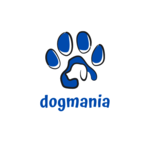The Role of Water in Your Dog's Diet: Myths and Facts You Need to Know
Water is often taken for granted, but its importance in the diet of our beloved canine companions cannot be overstated. As responsible pet owners, it's crucial to understand the significance of water in your dog's diet, dispelling myths and uncovering facts to ensure their health and well-being.
Myth 1: Dogs Don't Need Much Water
One common misconception is that dogs don't require much water intake, especially if they primarily consume wet food. However, water is essential for numerous bodily functions in dogs, just as it is in humans. Dogs lose water through breathing, panting, urination, and defecation, making it imperative to replenish their supply regularly.
Fact: Adequate Hydration is Vital for Canine Health
Proper hydration is vital for maintaining a dog's overall health and well-being. Water aids in digestion, regulates body temperature, lubricates joints, transports nutrients, and eliminates waste products. Without enough water, dogs can suffer from dehydration, leading to serious health complications such as kidney problems, urinary tract infections, and even organ failure.
Myth 2: Dogs Can't Overhydrate
Some pet owners believe that dogs can't overhydrate, leading them to leave water out for their pets at all times without monitoring intake. While dehydration is a significant concern, overhydration can also pose risks to a dog's health.
Fact: Overhydration Can Be Dangerous
Excessive water intake can lead to a condition called water intoxication or hyponatremia, where the body's sodium levels become dangerously low. Symptoms include lethargy, vomiting, bloating, seizures, and, in severe cases, coma or death. It's essential to provide water regularly but monitor intake, especially during vigorous exercise or play.
Myth 3: All Water Sources Are Safe for Dogs
Many pet owners assume that any water source, whether from the tap, a stream, or a pond, is safe for their dogs to drink. However, not all water sources are created equal, and some can contain harmful contaminants.
Fact: Ensure Access to Clean, Fresh Water
Providing clean, fresh water is essential for your dog's health. Tap water is generally safe, but if you're unsure about the quality, consider using a water filter. Avoid letting your dog drink from stagnant ponds, rivers, or puddles, as they may contain bacteria, parasites, or toxins that can make your pet sick.
Myth 4: Dogs Can't Drink Too Much Water at Once
Some pet owners believe that dogs can drink as much water as they want at once without any adverse effects. However, allowing your dog to gulp down large amounts of water in a short period can lead to bloating or gastric dilation-volvulus (GDV), a life-threatening condition where the stomach twists and fills with gas.
Fact: Encourage Moderate Drinking Habits
Encourage your dog to drink water in moderation throughout the day rather than in large, rapid quantities. Offer small, frequent drinks, especially after exercise or during hot weather, to prevent dehydration without overwhelming their system.
Myth 5: Dogs Don't Need Water During Winter
During the colder months, some pet owners may reduce their dog's water intake, believing that they don't need as much hydration in cooler temperatures. However, dogs still require adequate water intake year-round.
Fact: Ensure Consistent Hydration Regardless of Season
Regardless of the weather, it's essential to ensure that your dog has access to fresh, clean water at all times. Cold weather can be dehydrating, especially if your dog spends time outdoors, so monitor their water consumption and refill their bowl regularly.
conclusion
Water plays a crucial role in your dog's diet and overall health. By dispelling myths and understanding the facts, you can ensure that your furry friend remains properly hydrated and happy. Remember to provide clean, fresh water, monitor their intake, and encourage moderate drinking habits to keep them healthy for years to come.



leave me your thoughts here